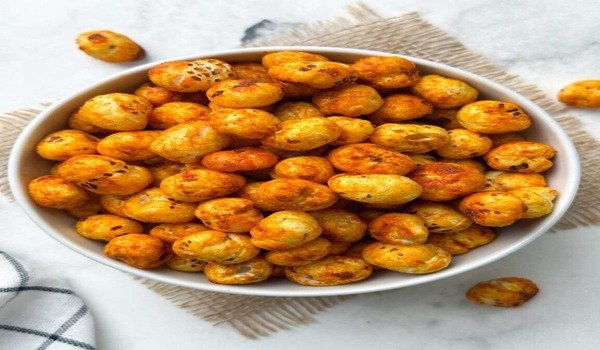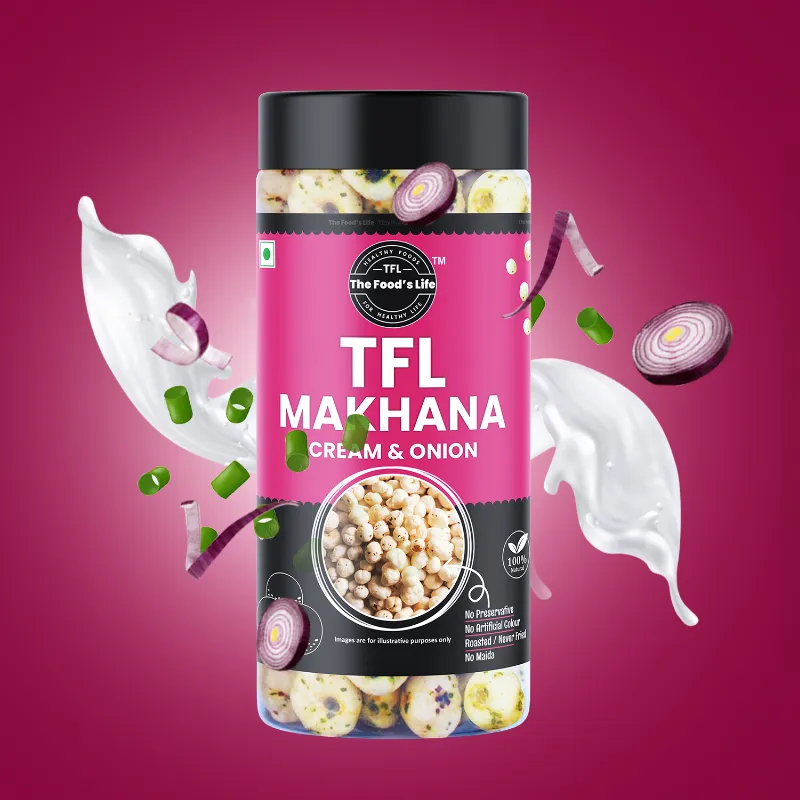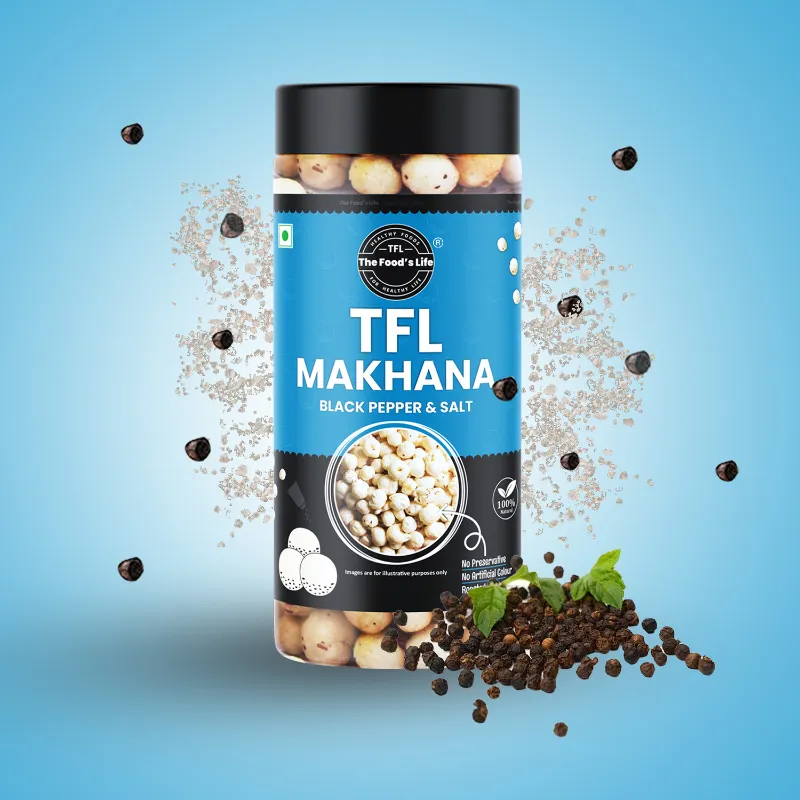Introduction
Fasting has been a spiritual and cultural practice for centuries, deeply rooted in traditions across the world. In India, fasting is not just a religious observance but also a way to detoxify the body and soul. With time, the art of fasting has evolved, and so have the foods consumed during fasts. Makhana, commonly referred to as fox nuts or lotus seeds, is a superfood that has gained quite an attention over the past years. This superfood raises an important question: Can we eat makhana in fast without losing out on the sanctity of our traditions? We at The Food's Life believe in blurring the best of tradition and modern nutrition. Let's delve deeper into this question.
Food During Fasting
There is a lot of variation in the type of fasting practices, but the basic principle is that one avoids specific foods while indulging in the ones that meet the goal of fasting. Most common foods during fasting are light, easily digestible, and energizing, allowing the body to dedicate itself to the spiritual activity. Fruits, nuts, and some grains form a part of every fast. Where does makhana come in, and is it permissible to eat makhana in a fast?
What Makes Makhana Special?
Makhana has been a staple in Indian households for generations, valued for its unique taste and exceptional health benefits. Here's why makhana has become a go-to choice for fasting:
- Nutritional Powerhouse: Makhana is rich in protein, calcium, and antioxidants, making it an ideal snack to sustain energy during fasts.
- Low-Calorie: Its low-calorie content ensures that you stay full without overindulging.
- Easily Digestive: Makhana is lightly digestible as it is best suited for eating during fasting as well.
It can be light roasted or preferably seasoned with fast-permissible spices. Thus, it will serve the purpose perfectly without violating fast rules.
Can I Eat Makhana in a Fast?
Answer: Yes and No. Everything depends on fast type and also on how it will be prepared.
Let's Dive Deeper:
1. Religious Approval
Many Indian fasting recipes accept makhana as a sattvic (pure) food. This food is generally added to recipes of kheer, roasted snacks, or light curries for the fasting season.
2. Nutritional Requirements
Fasting often leaves one weak. Intake of makhana is an instant energy provider and does not interrupt the fasting cycle. It's an excellent source of protein and minerals that keeps one energetic.
3. Maintaining Fasting Norms
Rules vary in different fasting traditions. For instance, in Navratri fasts, only specific spices and ingredients are allowed. Preparing makhana with rock salt and minimal seasoning ensures it aligns with these rules.
Makhana Recipes for Fasting
If you're wondering can we eat makhana in fast and how to incorporate it, here are some delicious and fasting-friendly recipes:
1. Roasted Makhana
- Ingredients: Makhana, ghee, rock salt, cumin powder.
- Method: Roast the makhana in ghee until crispy. Sprinkle rock salt and cumin powder. Enjoy it as a light, crunchy snack.
2. Makhana Kheer
- Ingredients: Makhana, milk, sugar, cardamom, nuts.
- Method: Boil milk and add roasted makhana. Sweeten with sugar and give it a flavor of cardamom. Garnish it with nuts.
3. Spiced Makhana
- Ingredients: Makhana, ghee, turmeric, rock salt, black pepper.
- Method: Roast makhana in ghee. Add turmeric, rock salt, and black pepper for a flavorful twist.
Why Choose Makhana Over Other Fasting Foods?
While there are many foods consumed during fasts, makhana stands out for several reasons:
- Sustained Energy: Unlike fruits that provide a quick energy spike, makhana offers sustained energy throughout the day.
- Low Glycemic Index: Makhana’s low glycemic index helps maintain stable blood sugar levels.
- Versatility: It can be used in both savory and sweet dishes, making it a versatile fasting food.
- Nutritional Benefits: Makhana is rich in antioxidants, which helps fight fatigue and keeps you fresh.
Debunking Myths About Fasting and Makhana
Let's debunk some of the common myths about eating makhana during fasts:
Myth 1: Makhana is Too Heavy for Fasting
Reality: Makhana is light and easy to digest, making it a great fasting food.
Myth 2: Makhana is Not Traditional
Reality: Makhana has been used in Indian fasting recipes for centuries, especially in North India.
Myth 3: Makhana Needs Spices to Taste Good
Fact: Even with minimal seasoning like rock salt and ghee, makhana is delicious and fasting-friendly.
Health Benefits of Makhana During Fasting
Incorporating makhana into your fasting diet doesn't just align with traditions; it also offers numerous health benefits:
- Boosts Immunity: Antioxidants in makhana strengthen the immune system.
- Promotes Weight Loss: Its low-calorie and high-fiber content support weight management.
- Improves Digestion: The fiber content of Makhana will help improve digestion and avoid problems like constipation during fasting.
- Regulates Blood Sugar: Low glycemic index ensures stable blood sugar levels.
- Supports Heart Health: Magnesium in makhana regulates blood pressure and maintains a healthy heart.
The Food's Life: Your Partner in Healthy Fasting
The passion at The Food's Life for healthy food promotion and ensuring our nourishing range of products ensures the food has met nutritional as well as fasting requirements by ensuring high-quality makhana source and preparation standards. You will definitely enjoy makhana, be it roasted or prepared in some recipes for your fasting days.
Conclusion
So, can we consume makhana in fast? The answer is a clear yes. Makhana is not only in tune with the tradition of fasting but also provides an array of nutritional benefits that make your fasting experience healthier and more enjoyable. At The Food's Life, we're dedicated to giving you the best-quality makhana, bridging the gap between tradition and modern nutrition. Embrace this superfood during your fasts and experience the perfect blend of taste, health, and spirituality.






